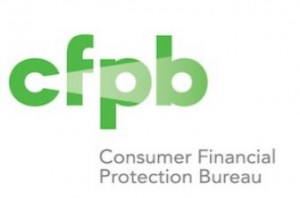
A recurring theme during many of the six labs at the Five Star Conference last week was compliance and how it has changed the mortgage and real estate industries in the last few years.
The laws are constantly changing, however, making compliance an even further complicated issue.
Laurie Maggiano, a program manager for servicing and secondary markets at the Consumer Financial Protection Bureau (CFPB), was on hand to discuss the ever-changing world of mortgage servicing statutes for the "CFPB's National Servicing Standards – Update Session" section of the FSC Compliance Lab on September 15.
"Mortgage servicing in 2014 isn't NASCAR where you direct your staff around a predicable track repeating the same steps over and over," Maggiano said. "To a great extent it is the Wild West with state and federal regulators changing the rules of engagement on a regular basis, state banking regulators and attorneys general citing servicers for infractions that were industry practice, albeit poor ones, 10 years ago; bank and non-bank servicers competing for product in an uneven ring and investors so risk averse that it is surprising there are any new loans coming out of the chute. It is a demanding but also an exciting and creative time to be in this business."
Maggiano presented four new rules that have either recently passed or are pending and taking comments.
The first was the Interpretive Rule on Successors in Interest and ATR (ability to repay) Rule, which was published on July 8. The ATR rule is intended to stop consumers from assuming debt they cannot repay and applies to new originations and mortgage assumptions. The Interpretive Rule was added to give an exemption from the ATR rule to successors in interest who inherit a property's title but are not listed on the mortgage, such as divorced or surviving spouses.
The second rule Maggiano discussed was the Publication of Consumer Complaint Narratives, which was proposed on July 17 and is taking comments until September 22. This rule involves publishing a database featuring consumers' full complaints against financial institutions. While the CFPB says such a rule will benefit consumers by providing them with necessary information and will result in more transparency among financial institutions, some analysts have criticized this rule; since there is no way to verify the allegations made in the complaints, the CFPB may in some cases be publishing unfounded grumblings of disgruntled individuals.
The third rule brought up was the Home Mortgage Disclosure Act (HMDA) Proposed Rule, which was issued on July 28 and is taking comments until October 22. This is a proposed amendment to the HMDA, which was amended as a result of the passage of the Dodd-Frank Reform Act in 2010. The new rule would standardize reporting between large and small banks, and while existing data fields would be used for reporting to simplify the process, CFPB would also be expanding the reporting by adding some data fields.
The Servicing Transfer Bulletin, which was published on August 19, was the fourth rule Maggiano discussed. While it is not the purpose of CFPB to inhibit transfers, she said, the purpose of this rule is to ensure that borrowers, especially those in the process of loss mitigation, are not harmed in any way by a mortgage loan transfer over which they have no control.
Indeed, the summer of 2014 was a busy one for updating CFPB laws and proposing new ones, which is bound to keep servicers on their toes as far as compliance goes.
"As you can see by the pace of change in just the past two, quiet, lazy months of summer, when you rightfully should expect that Washington shuts down and goes home, servicing policy is dynamic and fast paced," Maggiano said.